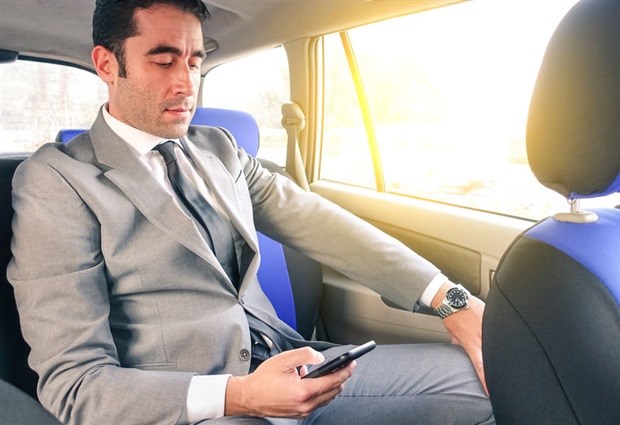
Top stories






More news


Marketing & Media
Ads are coming to AI. Does that really have to be such a bad thing?













The Uber start-up was founded in 2009 but at the time it was called the ‘Uber cab’. Since its relaunch in 2010 it has become a service provider without owning actual products. All people need to be able to access Uber’s services is a smartphone app which provides an on-demand service to users. Their founder’s revolutionised the ‘on demand’ model for a generation of consumers who live during a time of micro moments and in the ‘now’ connectivity. Uber serves to connect willing passengers to taxi cab drivers registered with the start-up, and the beauty of it is that passengers don’t have to wait as long as they do for traditional taxis and other public transportation systems.
Uber is supposedly valued at $50bn, registers a million rides a day and is available in over 60 countries. Their services are popularly used by business travellers, tourists and socialites all around the world because it’s the convenient way to get to places. Their service is especially creating competitive tension in countries like Kenya, South Africa and India where local taxi drivers, associations and owners feel Uber drivers are taking business away from them.

The company has been going through a number of lawsuits even in New York and other American cities since it’s not easy to govern or monitor the system, and this has been taking time away from growing the business further. But despite all of that, the San Francisco’s start-up model has been so effective that in September 2015 external investors channelled $8.5bn into the business.
It has also diversified since its founding by venturing into delivery services, boats, helicopters as well as some other transportation means on-demand. A motorcycle-pickup service was launched in Paris, they have a kids division that picks them up from school and senior citizens cabs, a goods on delivery service in San Francisco, and an ice-cream-truck-delivery service in seven other cities.
From random conversations with some of my peers it seems Uber is an appealing option because it offers a reliable service that requires no commitment and doesn’t force them to socialise. Uber isn’t just about the ride but an all-encompassing experience that comes with a playlist of your choice and comfort travel.
Taxis in developing countries like South Africa embody all things that make Uber special, from New York’s yellow taxis to London’s black cabs-taxi systems don’t come cheap. People use Uber services because it’s a ‘smart’, affordable way to travel and get around, when you’re using it others on the road can’t tell that those in them are in a taxi. There is a layer of anonymity that passengers can enjoy. It lives true to its tagline – ‘Your personal driver. It lets customers travel in style’.
Since its launch it has become top of mind to people shopping around for taxis, thus making its mark within the transport industry. Is there any more room for Uber to grow?
It’s rumoured that Facebook has secured a patent for a car sharing and travel tool that might potentially live on their events page. The proposed plan could utilise the model of a carpooling system for people heading to and organising an event. The feature could serve as another profitable financial streamline for the already popular site, with their existing influence and following amongst millennials, this could give Uber a run for their money.
By December 2015 Facebook already had a 1.55 billion global active user base that has been growing by 14% yearly, so they have the capacity to reach many people who may be interested in trying out their services. Like the Uber start-up, Facebook’s feature would only serve as a mediator, but only between the consumers - it’s not a taxi ownership proposition.
This could work in Facebook’s favour since it’s estimated that about 500 million people use the site’s ‘Event’s’ page to organise their events or find places to go and things to attend to, in 2015 alone about 123 million events were organised via the site. According to Mark Zuckerberg, they are planning to bring more transport platforms to Messenger in 2016. The platforms include Uber but there is room for its competitors to sign on as well. The feature would capitalise on the immense amounts of personal data they already have on the people using their platform, such as interests, friends and location to match interested parties.
But if the service would also be open to Uber’s competitors wouldn’t this constitute a conflict of interest for all parties? Does Uber even need to utilise Facebook’s platform when they have already established their own base and reputation in the market?
South African entrepreneurs are also riding the wave when it comes to on-demand travel. A local start-up launched a similar app idea in Cape Town that serves to match travellers with drivers going in the same direction, like a tinder for carpooling. uGoMyWay’s ‘ride share’ system isn’t competing in Uber’s market though. Also on the market is a car sharing company called locomute, it’s a rental concept that makes it possible for people to use the company’s cars parked throughout South Africa for a price. Cars can be booked and located via their app or website, it thrives to make car rental more flexible.
‘With the ability to request, track and pay for a ride in Messenger, we're making transportation as simple as sending a message,' Rosenberg said.
